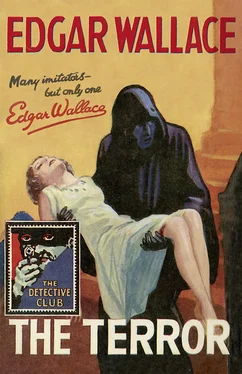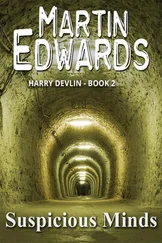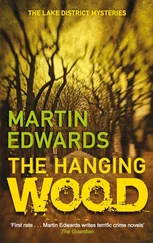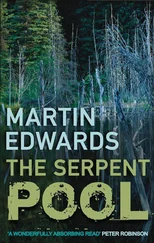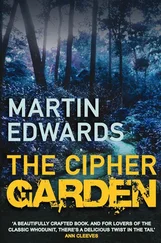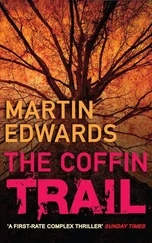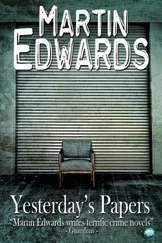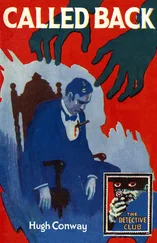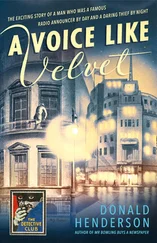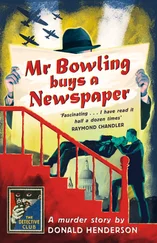‘Have you ever met O’Shea?’ asked Hallick.
Elk stared at him.
‘O’Shea—the bank smasher? No, I never met him. He is in America, isn’t he?’
‘I think he is very much in England,’ said Hallick, and the other man shook his head.
‘I doubt it.’ Then after a moment’s thought: ‘There’s no reason why he should be in England. I am only going on the fact that he has been very quiet these years, but then a man who made the money he did can afford to sit quiet. As a rule, a crook who gets money takes it to the nearest spieling club and does it in, and as he is a natural lunatic—’
‘How do you know that?’ asked Hallick sharply.
Before he answered, Elk took a ragged cigar from his pocket and lit it.
‘O’Shea is a madman,’ he said deliberately. ‘It is one of the facts that is not disputed.’
‘One of the facts that I knew nothing about till I interviewed old Connor in prison, and I don’t remember that I put it on record,’ said Hallick. ‘How did you know?’
Elk had an explanation which was new to his superior.
‘I went into the case years ago. We could never get O’Shea or any particulars about him except a scrap of his writing. I am talking about the days before the gold robbery and before you came into the case. I was just a plain detective officer at the time and if I couldn’t get his picture and his fingerprints I got on to his family. His father died in a lunatic asylum, his sister committed suicide, his grandfather was a homicide who died whilst he was awaiting his trial for murder. I’ve often wondered why one of these clever fellows didn’t write a history of the family.’
This was indeed news to John Hallick, but it tallied with the information that Connor had given to him.
The clerk came back at this moment with a formidable dossier and one thin folder. The contents of the latter showed the inspector that nothing further had been added to the sketchy details he had read before concerning O’Shea. Elk watched him curiously.
‘Refreshing your mind about the gold robbery? Doesn’t it make your mouth water to think that all these golden sovereigns are hidden somewhere. Pity Bradley isn’t on this job. He knows the case like I know the back of my hand, and if you think this murder has got anything to do with O’Shea, I’d cable him to come back if I were you.’
Hallick was turning the pages of the typewritten sheets slowly.
‘As far as Connor is concerned, he only got what was coming to him. He squealed a lot at the time of his conviction about being double-crossed, but Connor double-crossed more crooks than any man on the records, and Soapy Marks. I happened to know both of them. They were quite prepared to squeak about O’Shea just before the gold robbery. Where is Soapy?’
Hallick shook his head and closed the folder.
‘I don’t know. I wish you would put the word round to the divisions that I’d like to see Soapy Marks,’ he said. ‘He usually hangs out in Hammersmith, and I should like to give him a word of warning.’
Elk grinned.
‘You couldn’t warn Soapy,’ he said. ‘He knows too much. Soapy is so clever that one of these days we’ll find him at Oxford or Cambridge. Personally,’ he ruminated reflectively, ‘I prefer clever crooks. They don’t take much catching; they catch themselves.’
‘I am not worrying about his catching himself,’ said Hallick. ‘But I am a little anxious as to whether O’Shea will catch him first. That is by no means outside the bounds of possibility.’
And here he spoke prophetically.
He got through by ’phone to Monkshall, but Sergeant Dobie, who had been left in charge, had no information.
‘Has that woman, Elvery, left?’ asked Hallick.
‘Not she!’ came the reply. ‘She will hang on to the last minute. That woman is a regular crime hound. And, Mr Hallick, that fellow Fane is tight again.’
‘Is he ever sober?’ asked Hallick.
He did not trouble about Fane’s insobriety, but he was interested to learn that life in Monkshall, despite the tragedy and the startling event of the morning, was going on as though nothing had happened. Reporters had called in the course of the day and had tried to interview the colonel.
‘But I shunted them off. The general theory here is that Connor had somebody with him, that they got hold of the money and quarrelled about it. The other fellow killed Connor and got away with the stuff. When I said “The general idea”,’ said Dobie carefully, ‘I meant it is my idea. What do you think of that, sir?’
‘Rotten,’ said Hallick, and hung up the receiver.
ALL the machinery of Scotland Yard was at work. Inquiries had gone out in every direction and not even Mrs Elvery and her daughter had been spared. By midnight Hallick learned the private history, as far as it could be ascertained, of every inmate of Monkshall.
Mrs Elvery was a woman in fairly comfortable circumstances, and, since her husband’s death had released her from a gloomy house in Devonshire, she had no permanent home. She was more than comfortably off, by certain standards she was a wealthy woman, one of that mysterious band of middle-aged women who move from one hotel to another, and live frugally in fashionable resorts in the season. You find them on the Lido in August, in Deauville in July, on the Riviera or in Egypt in the winter.
Mr Goodman held a sleeping partnership in an old-established and not too prosperous firm of tea importers. Probably, thought Hallick, the days of its prosperity expired before Goodman retired from business.
Cotton, the butler, had the least savoury record. He was a man who had been discharged from three jobs under suspicion of pilfering, but no conviction could be traced against him. (Hallick wrote in his notebook: ‘Find some way of getting Cotton’s fingerprints.’) In every case Cotton had been employed at boarding houses and always small articles of jewellery had disappeared in circumstances which suggested that he was not entirely ignorant of the reason for such disappearance.
Colonel Redmayne’s record occupied a sheet of foolscap. He had been an impecunious officer in the Auxiliary Medical Staff, had been court-martialled in the last week of the war for drunkenness and severely reprimanded. He had, by some miracle, been appointed to a responsible position in a military charity. The disappearance of funds had led to an investigation, there had been some talk of prosecution, and Scotland Yard had actually been consulted, but had been advised against such a prosecution in the absence of direct proof that the colonel was guilty of anything but culpable negligence. The missing money had been refunded and the matter was dropped. He was next heard of when he bought Monkshall.
The information concerning Redmayne’s military career was news to Hallick.
‘A doctor, eh?’
Elk nodded. He had been charged with collecting the information.
‘He joined up in the beginning of the war and got his rank towards the finish,’ he said. ‘Funny how these birds hang on to their military rank—“doctor” would be good enough for me.’
‘Was he ever in the regular army?’
Elk shook his head.
‘So far as I could find out, no. Owing to the trouble he got into at the end of the war he was not offered a permanent commission.’
Hallick spent the evening studying a large plan of Monkshall and its grounds, and even a larger one of the room in which Connor had been found. There was one thing certain: Connor had not ‘broken and entered’. It was, in a sense, an inside job, he must have been admitted by—whom? Not by Redmayne, certainly not by his daughter. By a servant, and that servant was Cotton. The house was almost impossible to burgle from outside without inside assistance; there were alarms in all the windows and he had seen electric controls on the doors. Monkshall was almost prepared for a siege. Indeed, it seemed as though Colonel Redmayne expected sooner or later the visitation of a burglar.
Читать дальше
